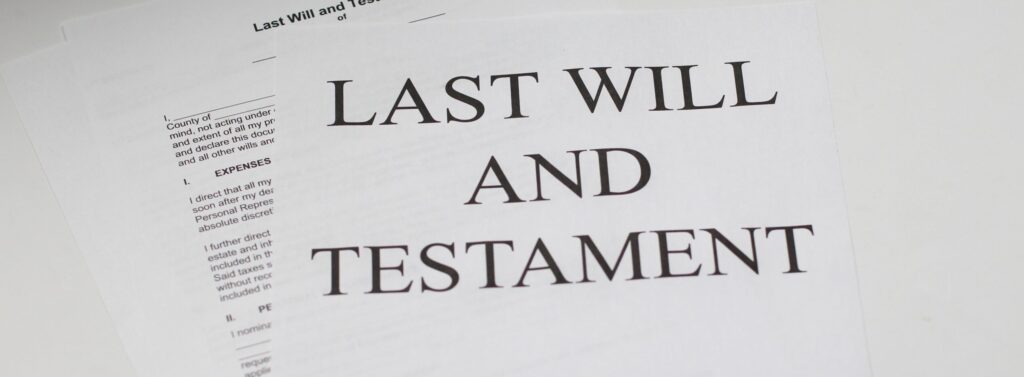Serving as an executor can entail significant responsibilities. It’s crucial, early in the administration process, to grasp these duties to mitigate any potential negligence and personal liability. Executors should act diligently, aiming to settle the estate within a year. Any delays beyond this timeframe should be justifiable with valid reasons.
When selling assets, executors must secure the best possible price. Seeking professional guidance is essential, and they should adhere to the consensus of the majority to benefit from the protections outlined in Section 50 of the Succession Act 1965. Decisions made collectively must be done so in good faith, free from personal agendas or conflicts of interest.
Background
An executor, appointed under a will, assumes the vital responsibility of estate administration, which involves identifying assets and liabilities, safeguarding the estate throughout the process, validating the will, and, upon obtaining the grant, gathering estate assets, settling debts, and providing an account to beneficiaries regarding their inheritances or bequests.
There exists no obligatory requirement for an executor to act. Following the testator’s passing, the executor must decide whether to proceed or renounce their role. It’s advisable to renounce early to avoid being deemed to have meddled in the estate, which could necessitate High Court consent for renunciation. Once renounced, an executor cannot reengage in estate matters.
Executors are duty-bound to distribute assets in accordance with the will’s provisions, thus owing beneficiaries a duty of care. Simultaneously, they’re obligated to discharge estate debts promptly, serving the interests of creditors.
Exercising due diligence is imperative for executors, as failure to do so may result in legal action from beneficiaries for any resulting losses. Preservation of asset value is paramount, necessitating insurance coverage for property assets at market value.
Given the potential complexity of some estates, executors are granted a grace period, known as the “executor’s year,” as outlined in Section 62 of the Succession Act 1965. During this time, they’re shielded from litigation fears. However, there’s no compulsion to distribute the estate within this timeframe. Unpaid legacies after a year may incur interest. Following the executor’s year, any beneficiary may request an account of actions, with the burden resting on the executor to justify delays.
When selecting an executor, it’s crucial to ensure compatibility with the will’s terms to prevent conflicts. If conflicts are anticipated, considering an alternate executor is prudent.
Recent Case Law
In the case of Shaughnessy v Shaughnessy (2016) IEHC 303, the plaintiff filed a lawsuit against the executor, alleging negligence and breach of duties, seeking damages for her losses. As per her late mother’s will, the plaintiff was entitled to a one-third share of the estate’s funds and a half-acre site from her brother’s land, who served as the executor. The testatrix passed away on September 7, 2007. Initially, the executor initiated the administration but later reconsidered due to doubts about the will’s validity and terms. Despite being urged to proceed with the estate administration and being aware of declining property values from 2007, the executor did not advance the process. The value of the half-acre site allocated to the plaintiff decreased from €70,000 to €25,000 by October 2012.
Additionally, the plaintiff claimed a €46,000 loss on a property acquired in Estonia, contending that diligent estate administration would have allowed her to service her loan and prevent this loss. The court ruled that the executor breached his duty of care to the estate and the plaintiff by unduly delaying and thus acted negligently.
However, the court deemed the loss on the Estonia property unrecoverable as it wasn’t foreseeable by the executor. Similarly, the plaintiff’s risk of losing her apartment wasn’t communicated to the executor, thus impeding this claim.
Regarding the transfer of the half-acre site, the court deemed it a straightforward task and criticised the two-year delay in vesting the property to the plaintiff. Had the estate been managed diligently, the court believed the plaintiff wouldn’t have incurred the €30,000 net loss, thus awarding this amount to her. The executor was held personally liable for compensating the plaintiff.
In Aideen Doyle (o/w Clodagh White) v Niamh White and Derval White (2017) IEHC 44, the plaintiff alleged that the executors failed in their duty by not obtaining the best price for the deceased’s home. The court emphasised executors’ fiduciary duties to act diligently, exercise care expected from a prudent individual, and maximise estate value.
In instances where a will mandates asset sales, executors must seek proper advice and secure the best price. If the will lacks explicit instructions, executors may sell assets to settle debts, with Section 50 of the Succession Act 1965 permitting sales supported by the majority of beneficiaries’ views by value. However, this does not absolve executors if the majority view is unreasonable, leading to conflicts of interest, bad faith, or negligence.
Executors following the majority view in good faith are implicitly protected, but this doesn’t apply if it results in losses due to gross negligence or conflicts of interest. Thus, the court ruled that no loss occurred when executors adhered to the majority’s views, especially if exercised in good faith without conflicts of interest.








